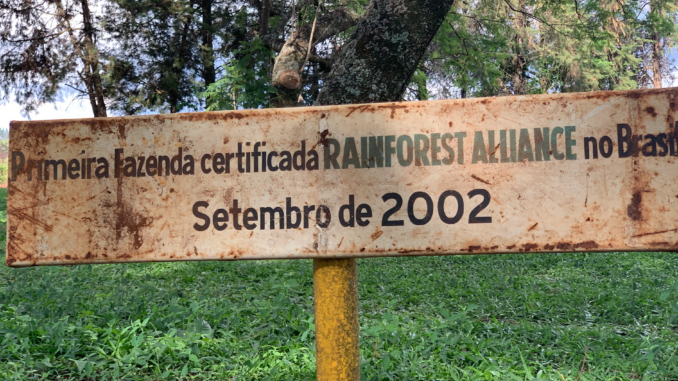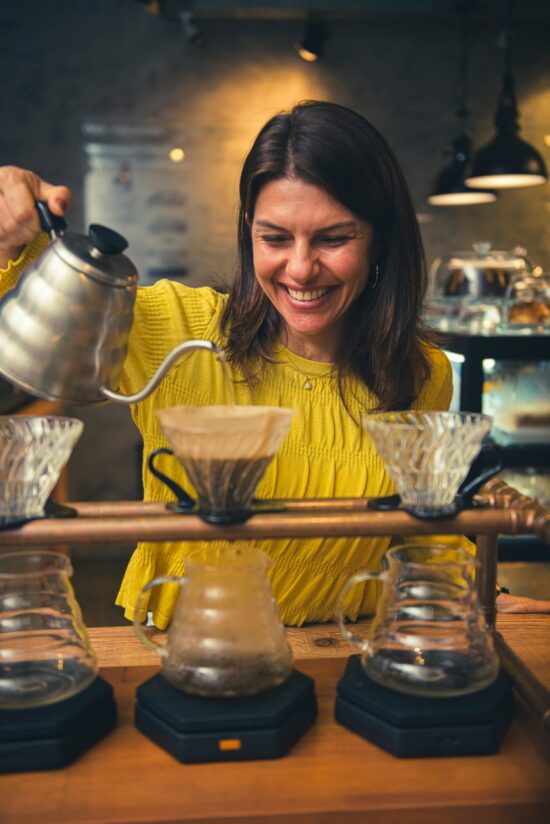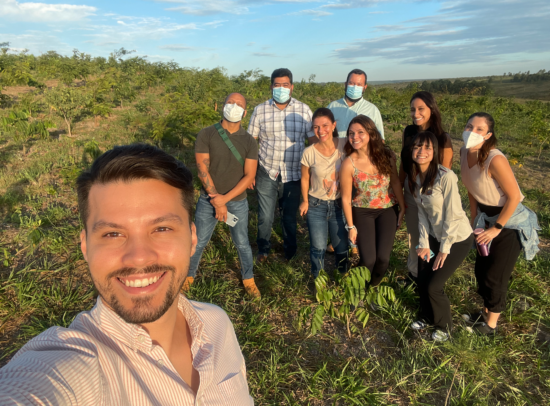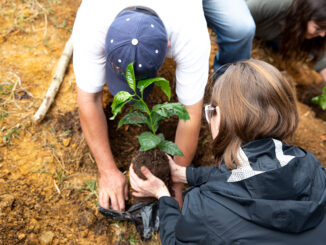
Here’s why Brazilian coffee producers Daterra worked tirelessly to get the sustainability-focused certification, and how others can achieve it too.
BY YKER VALERIO
SPECIAL TO BARISTA MAGAZINE ONLINE
Photos courtesy of Daterra Coffee
Sustainability is a significant concern for many businesses. Likewise, we’re especially aware of the threat of climate change in the coffee industry. We know that coffee may disappear by 2050 due to increasing global temperatures, which leads to a higher risk of coffee leaf rust disease. Additionally, the industry has struggled with inequality across the coffee value chain.
The B Corp movement started in 2006 to promote a new way of doing business so companies “balance profit with purpose.“ In the last several years, it has gotten the attention of many coffee, wine, and food businesses, all striving for B Corp certification to prove that they are doing better business for the global good.
Among coffee companies, Daterra is one of the pioneer certified B Corps. The company has been working for coffee sustainability for decades, and since then, it has accomplished significant feats. Considering Daterra’s track record, the company has become a reference in the coffee industry, particularly from the perspective of producers.
Isabela Pascoal Becker, Daterra’s sustainability director, talked to us to help us understand how it is to run a B Corporation.

Why Become a B Corp?
Scientific research suggests that modern agriculture has a profound impact on the environment. At the same time, it’s the most vulnerable economic sector to environmental risks.
In this regard, Brazil-based coffee producers Daterra have championed sustainability efforts in agribusiness for decades. They have applied successfully to different certifications such as Rainforest Alliance, UTZ Kapeh, and IBD Organic. Even before that, the company partnered with ESALQ (São Paulo State University – Luiz de Queiroz) to create its first environmental standards, PEA: Program for Environmental Adequacy.
“We have been driven by sustainability since we started,“ says Isabela. Daterra was the first Brazilian farm to become Rainforest Alliance-certified. Additionally, in 2015, Daterra won the prize for the most sustainable farm by Globo Rural, Brazil’s major agricultural magazine, among many other achievements.
Isabela’s role is closely aligned with Daterra’s pursuit of sustainability and positive impact. For this reason, soon after she learned about B Corp, Isabela wanted Daterra to apply for the certification.
“I was sure that we were a B Corp,“ says Isabela, “we work to protect the environment and train entrepreneurs to be more sustainable. I felt that we needed to improve, and B Corp standards could help us find opportunities to be better.“
The scope of B Corp standards is broader, addressing inequality issues and environmental and economic sustainability. Considering these aspects, it sounded like a logical next step for an agribusiness with other more sustainability-focused certifications.
In this regard, Isabela claims that the certification process is challenging but enlightening at the same time. “We learned so much about the company during the process; simply by gathering all the documentation and looking at our work, we learned a lot about Daterra,“ says Isabela.
In short, the main reason to become a B Corp for Daterra was to be a stronger force for good. Isabela says, “B Corp standards push you to improve continuously.“

Is It Hard to Become a B Corp?
“At first, I thought it was too much work,“ answered Isabela when asked about the B Corp certification process.
The main challenge, according to Isabela, is to gather all the documentation required by B Lab. It’s mandatory to provide information about suppliers and clients to obtain the B Corp certification. As complex as collecting relevant information about Daterra was, Isabela says it was challenging to gather documents from other companies. Many people wanted to understand better why they had to share their companies’ information.
“B Corp requires you to work together with suppliers and clients,“ she says. Hence, according to Isabela, it’s a way to promote meaningful business change from the beginning of the certification process.
Another challenge was to change Daterra’s Articles of Incorporation to reflect the nature of a benefit corporation. In this regard, traditions are a significant barrier to change, particularly labor. Brazil has been improving rural working conditions, but there’s still a gap between the quality of employment in the cities and rural zones.
How to Implement B Corp Standards
“B Corp isn’t only a certification. It’s a movement,“ says Isabela. So, “it’s important to acknowledge that it’s impossible to be perfect, but we can do our best to improve.“
In this regard, Isabela recommends prioritizing the actions B Corp standards recommend, and starting with the easiest ones. Afterward, improve other aspects whenever possible. “Don’t be angry with B Corp,“ says Isabela, “I was angry the first time I read the recommendations because some were impossible.“ In this regard, Isabela recommends reflecting on the findings, being critical of the results, and looking for improvement opportunities that can become quick wins.
According to Isabela, “Becoming a B Corp is a long-term investment. It’s a cultural change that involves learning from your team, involving key leaders to implement change, and looking for continuous improvement.“
ABOUT THE AUTHOR
Yker Valerio (he/him) is a freelance content creator. After more than 10 years of working as a management consultant, he started the blog Bon Vivant Caffè to share his passion for specialty coffee.




